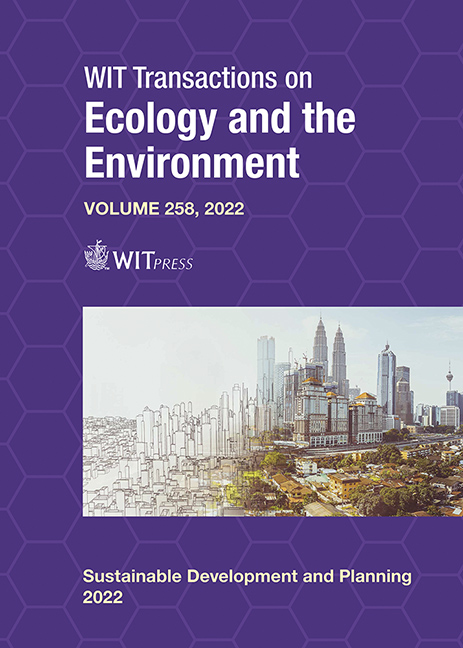POTENTIAL OF EXTERNAL SUBJECTS: SUBJECT AND OBJECT–SUBJECT COMMUNICATIONS BETWEEN PROFESSORS AND STUDENTS OF HIGHER SCHOOLS OF ARCHITECTURE
Price
Free (open access)
Transaction
Volume
258
Pages
13
Page Range
39 - 51
Published
2022
Paper DOI
10.2495/SDP220041
Copyright
Author(s)
IRINA TOPCHIY
Abstract
This paper explores the potential of external object–subject communications to enhance the professional competences of professors and students at higher schools of architecture. The urgency for development of communication between the academic community and the external environment is explained by the need to increase the competitiveness of architectural schools and their graduates. The axiom is that the condition of competitiveness is the ability to respond to changing social preferences for artistic and stylistic, engineering–technological, economic and ecological qualities of architecture and to adapt acquired knowledge in methods of architectural design and professional education. The hypothesis of the study is the idea that the acquisition of relevant professional competences by students and the renewal of existing professional competences by teachers within architectural schools occurs in conditions of activity object–subject inter-professional, interdisciplinary and social communication. In order to obtain objective and reliable information on the role of communications in the acquisition of universal and general professional competences, two questionnaires of sociological research (for teachers and students) are prepared for 2022. During the preparation of the questionnaire, the potential of pedagogical communication, reflected in scientific and theoretical research by Russian and foreign scientists, the experience of modern architectural activity, and the legislative conditions for the activity of higher schools of architecture of the Russian Federation were used. The developed questionnaires are attached along with the material for scientific discussion (see Appendix).
Keywords
inter-professional communications, public engagement in architecture, social and communicative education environment, object communications, knowledge`s inversion





